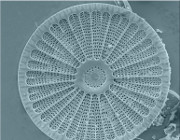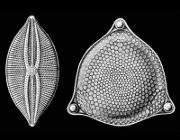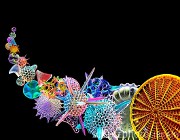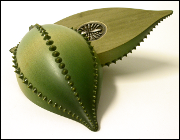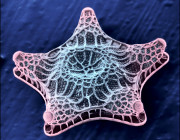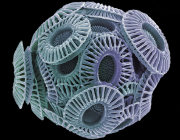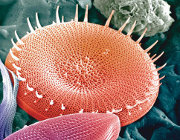Home :: List of Publicly Available Datasets :: Fragilariopsis kerguelensis L2-C3
Fragilariopsis kerguelensis L2-C3
Downloads:
| Principle Investigator(s) | Thomas Mock |
|---|---|
| External sample ID | Fkerg_darkness |
| NCGR Sample ID | MMETSP0909 |
| Sample accession number | CAM_SMPL_002743 |
| Assembly accession number | CAM_ASM_000561 |
| Combined Assembly Name | Fragilariopsis-kerguelensis-L2_C3 |
| Genus | Fragilariopsis |
| Species | kerguelensis |
| Strain | L2-C3 |
| Clonal | Yes |
| Axenic | Yes |
| Prelim. NCBI Taxon ID | 186038 |
| 18S rRNA | |
| Importance of organism and transcriptomes | F. kerguelensis is a key phytoplankton species in open waters of the Southern Ocean. It blooms in iron fertilization experiments and significantly contributes to the silicon and carbon cycle of the Southern Ocean because it has heavily silicified cell walls. It furthermore is a model species for silicon bionanotechnology. |
| Additional citations and references | |
| Environmental Data | |
| Primary citation for organism's characterization, if available | Assmy, P., Henjes, J., Smetacek, V. and Montresor, M. (2006), AUXOSPORE FORMATION BY THE SILICA-SINKING, OCEANIC DIATOM FRAGILARIOPSIS KERGUELENSIS (BACILLARIOPHYCEAE). Journal of Phycology, 42: 1002?1006. doi: 10.1111/j.1529-8817.2006.00260.x |
| Latitude | -48.1 |
| Longitude | -24.25 |
| Depth (m) | 20 |
| Salinity (psu) | 33.8 |
| Temperature (ºC) | 8.05 |
| Collection date | 24-JAN-09 |
| Sample collection site | Southern_Ocean |
| Other collection site info | Polarstern cruise ANT-XXV/3 |
| Sample material (e.g. "seawater," "sediment," etc.) | Seawater |
| Filter fraction minimum (μm) | 20 |
| Volume filtered (L) | 2000 |
| ENVO term for habitat - primary term | Acquatic: marine |
| ENVO term for habitat - secondary term | Not Applicable |
| Habitat description | Atlantic sector of the Southern Ocean |
| Other environmental metadata available | late austral summer to early austral fall |
| Other environmental metadata available | late austral summer to early austral fall |
| Habitat | marine habitat |
| Country | ANTARCTICA |
| Experimental Data | |
| Date of experiment | 18-JUL-11 |
| Growth medium | f/2-R (silicate 210 ?M) amended seawater |
| Temperature (ºC) | 5 |
| Salinty (psu) | 35 |
| pH | 8.1 |
| Night portion of day:night cycle in hours | 24 |
| Nitrate (μmol/L) | 100 |
| Phosphate (μmol/L) | 6.25 |
| Silicate (μmol/L) | 210 |
| Trace elements (total) (nmol/L) | 1099.5 |
| Investigation type | Eukaryotes |

